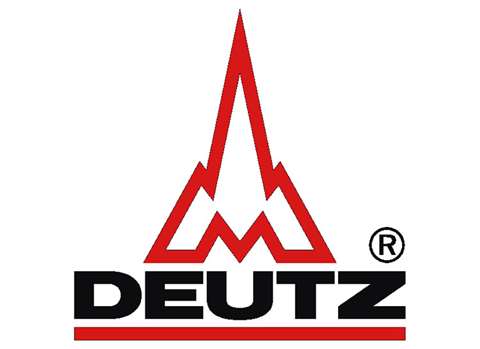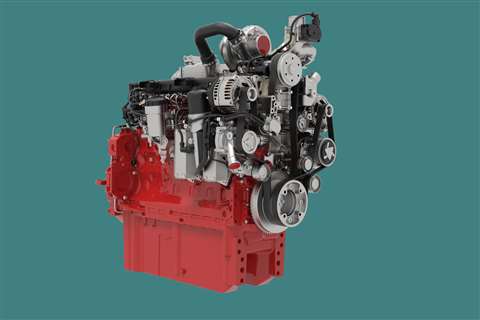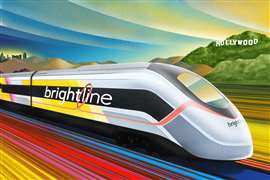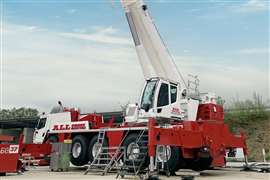Deutz looks to alternative fuels
17 November 2017

Engine manufacturer Deutz has approved the latest generation of its TCD engine range for operation with alternative fuels, a move that it said would make a further significant reduction to the carbon footprint of combustion engines.
It added that it even raised the prospect of running such engines on a carbon-neutral basis.
For Deutz, this was said to represent “the next logical step” in its efforts to develop sustainable and efficient drive systems. In combination with the electrification of its engine portfolio under the E-Deutz strategy, it said it was aiming for market leadership in the field of innovative drivetrains.
Deutz said that sole use of electric motors was already a viable option in the low power output range, but for medium- and heavy-duty applications – for example involving construction equipment or tractors – there was as yet no suitable replacement for the combustion engine as the primary source of power.
It added that while electrification could improve efficiency as part of a hybrid system and allowed for a downsizing of the combustion engine, there was still considerable potential for improving the eco-friendliness of conventional engines by choosing different fuels.
Deutz has now approved the TCD 2.9/3.6/4.1/6.1/7.8/12.0/16.0 engine series under the EU Stage IV and US Tier 4 standard, as well as all older Deutz engines without exhaust aftertreatment, for operation with paraffinic diesel fuels and biodiesel or biodiesel blends.
The term paraffinic diesel fuel encompasses a wide range of products, Deutz explained.

It said HVOs (hydrogenated vegetable oils), in particular, were currently being produced on a commercial scale from sustainable plant oils and waste fats.
“In the future, e-fuels will also become part of the mix that will enable engines to operate on an eco-friendly, carbon-neutral basis using renewable energy,” the company said.
It explained that the underlying principle was that, in the production process, the same amount of CO2 was taken out as was emitted by the combustion process. Because of its chemical composition, synthetic diesel fuel produced by this method can be mixed and used with fossil-based diesel in any ratio, it said.
The idea behind using biodiesel is also to cut CO2 emissions, Deutz added.
In Europe, biodiesel is primarily based on sustainably- and locally-produced vegetable oils and waste fats, it said. The approval covers 100% biodiesel for EU Stage IV as well as biodiesel blends – blended fuels containing biodiesel, for EU Stage IV and US Tier 4 engines.
Dr Markus Schwaderlapp, head of research and development, said, “For us as an engine manufacturer, alternative fuels are a key component in our innovative drive system mix.
“We believe that e-fuels offer a lot of potential for running combustion engines on a carbon-neutral basis. We are therefore looking to combine the benefits of combustion engines – robustness, mobility and flexibility – with those offered by electric drives.”






